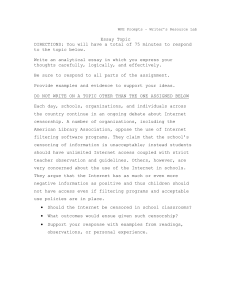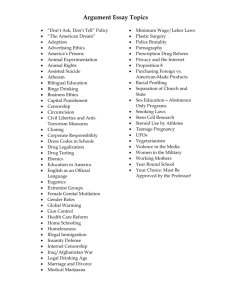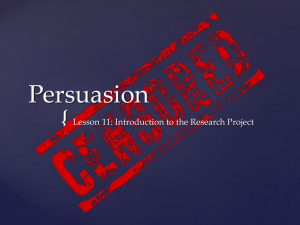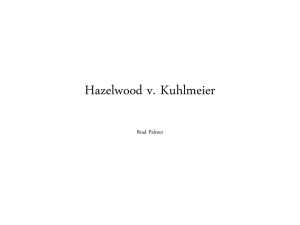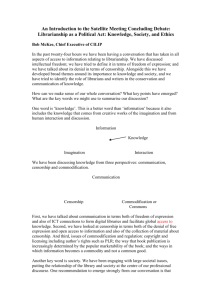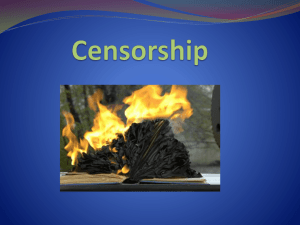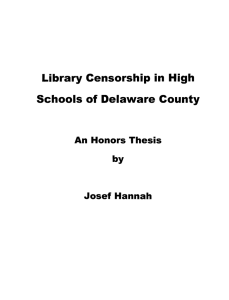CENSORSHIP, THE INTERNET,
advertisement
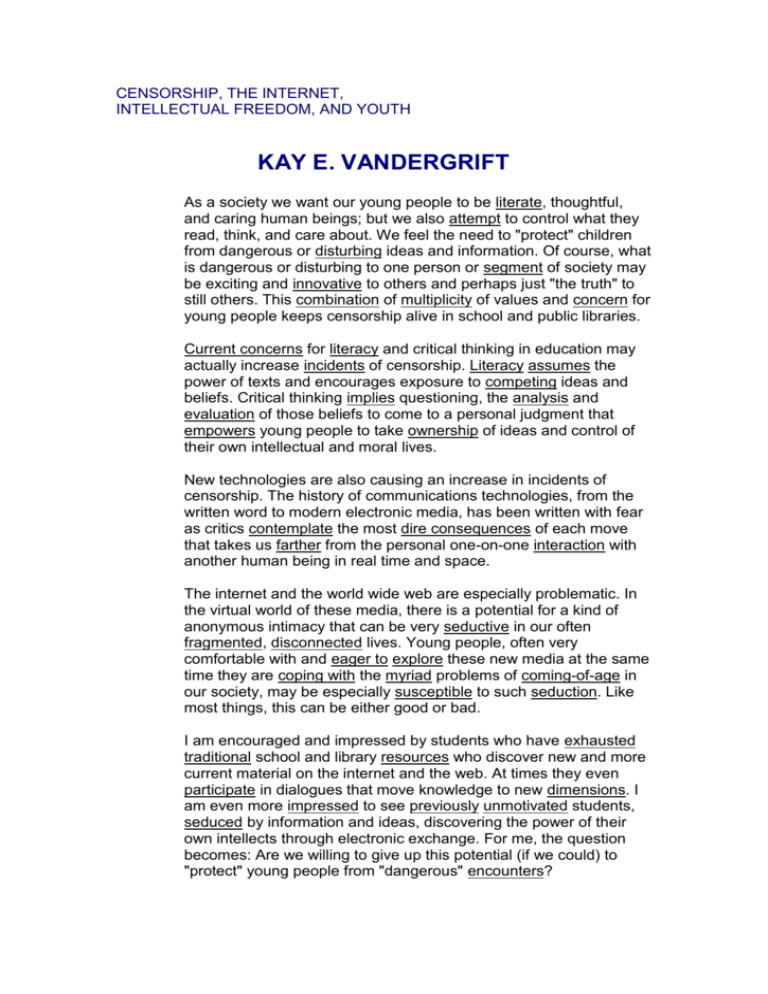
CENSORSHIP, THE INTERNET, INTELLECTUAL FREEDOM, AND YOUTH KAY E. VANDERGRIFT As a society we want our young people to be literate, thoughtful, and caring human beings; but we also attempt to control what they read, think, and care about. We feel the need to "protect" children from dangerous or disturbing ideas and information. Of course, what is dangerous or disturbing to one person or segment of society may be exciting and innovative to others and perhaps just "the truth" to still others. This combination of multiplicity of values and concern for young people keeps censorship alive in school and public libraries. Current concerns for literacy and critical thinking in education may actually increase incidents of censorship. Literacy assumes the power of texts and encourages exposure to competing ideas and beliefs. Critical thinking implies questioning, the analysis and evaluation of those beliefs to come to a personal judgment that empowers young people to take ownership of ideas and control of their own intellectual and moral lives. New technologies are also causing an increase in incidents of censorship. The history of communications technologies, from the written word to modern electronic media, has been written with fear as critics contemplate the most dire consequences of each move that takes us farther from the personal one-on-one interaction with another human being in real time and space. The internet and the world wide web are especially problematic. In the virtual world of these media, there is a potential for a kind of anonymous intimacy that can be very seductive in our often fragmented, disconnected lives. Young people, often very comfortable with and eager to explore these new media at the same time they are coping with the myriad problems of coming-of-age in our society, may be especially susceptible to such seduction. Like most things, this can be either good or bad. I am encouraged and impressed by students who have exhausted traditional school and library resources who discover new and more current material on the internet and the web. At times they even participate in dialogues that move knowledge to new dimensions. I am even more impressed to see previously unmotivated students, seduced by information and ideas, discovering the power of their own intellects through electronic exchange. For me, the question becomes: Are we willing to give up this potential (if we could) to "protect" young people from "dangerous" encounters? For the most part, I can make the analogy to other media and decide that, if we are not willing to eliminate books and libraries because they may contain "dangerous" ideas, why would we attempt to keep young people from the internet and the world wide web? Obviously, however, we do attempt to "protect" young people from much that is available in traditional print media, and various types of filtering software are now available to "protect" young people in the electronic world as well. I fear that again concerned adults, often professional educators, are burying their own heads in the sand with the mistaken notion that, therefore, young people will not be exposed to these dangerous ideas. Such ostrich-like behavior focuses our attention on banning things, diverting our energies from the very real educational process of helping students sort out, select, and look critically at the information and the individuals they encounter in this virtual world. What is needed is not censorship but powerful and thoughtful dialogue focusing on inquiry and the development of personal judgment. Only then will tomorrow's adults be prepared to deal with the difficult decisions that face them in the 21st century. As concerned adults, we need to understand conflicts of intellectual freedom, not as something negative or practiced by those less enlightened than ourselves, but as a process in which we are all participants playing various roles based on age, family background, societal position, religious beliefs, and profession. As professional teachers and librarians, those who serve youth in school and public libraries have a pivotal part to play in this ongoing intellectual and moral drama. In order to best serve young people, we need consciously to consider both the basic underpinnings of intellectual freedom in our society and the requirements of the professional roles we play. My personal interpretation of professional assumptions and our role in this drama follows, and I invite others to read, question, think, criticize, and share their own interpretations to help keep this drama alive. Without this ongoing dialogue and challenge to ideas and beliefs, there is no intellectual freedom.




